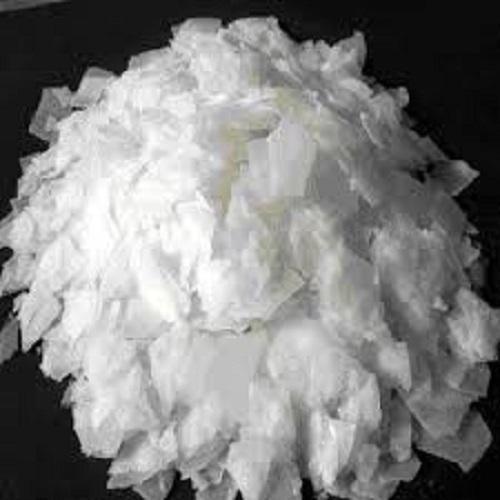
caustic potash, also known as potassium hydroxide (KOH), is a strong base commonly used in a variety of industrial and chemical applications. It is a white, hygroscopic solid with a high melting point (360 °C) and is highly caustic and corrosive. It is soluble in water, ethanol, and methanol.
Caustic potash is produced by the electrolysis of potassium chloride (KCl) in a process known as the “chloralkali process.” This process involves dissolving KCl in water to form a solution known as brine, which is then electrolysed to produce KOH, chlorine gas and hydrogen gas.
Caustic potash is widely used in the production of soap and detergents, as a neutralizing agent in the production of fertilizers, and as a reagent in the production of other chemicals such as potassium carbonate and potassium permanganate. It is also used in the refining of petroleum products, to neutralize acids in food processing, and as a cleaner and degreaser.
| Parameters | SRAAC Specifications |
| Purity as NaOH, % by mass | Min. 90.0 |
| Potassium carbonate 1,% by mass | Max. 0.75 |
| Potassium chloride I % by mass | Max. 0.10 |
| Iron as Fe, ppm | Max. 20.0 |
| Nickel as Ni , ppm | Max. 4.0 |
| Sodium as Na I % by mass | Max. 1.5 |